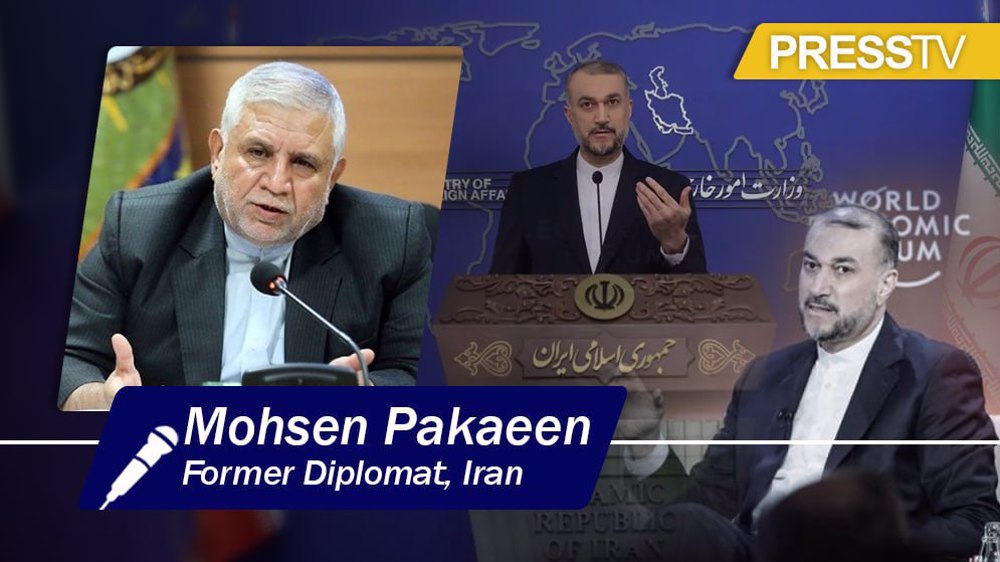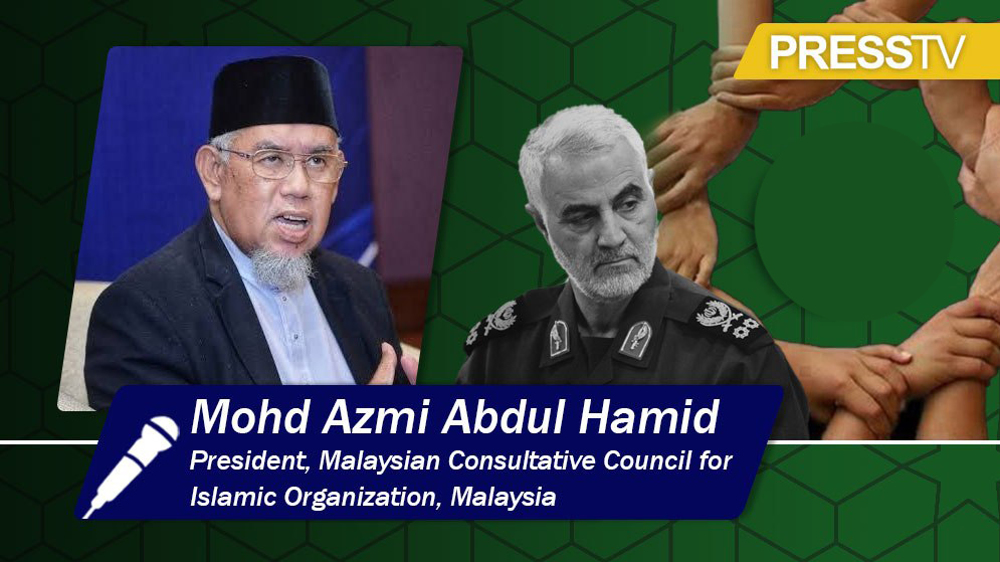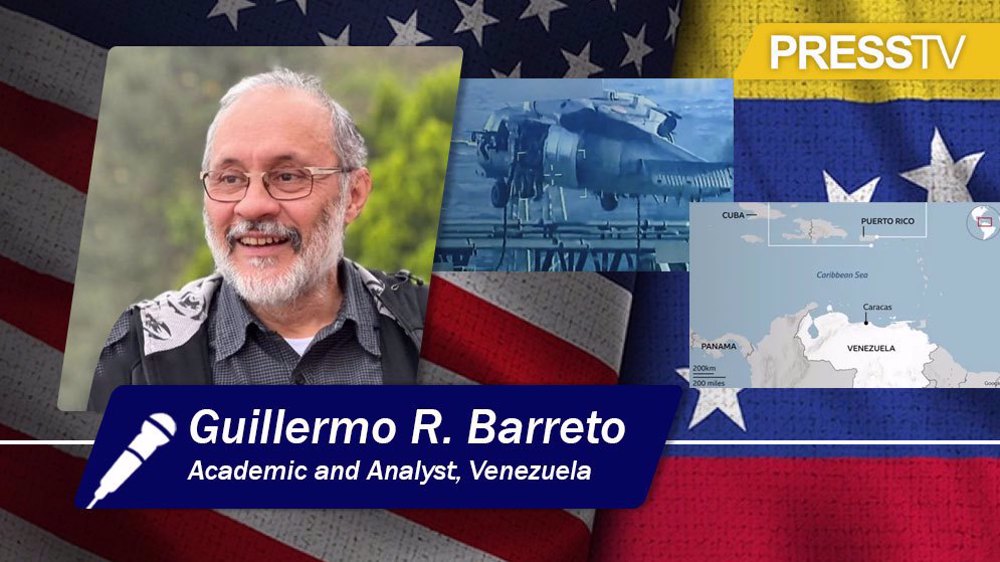FM Amir-Abdollahian played key role in strengthening resistance front: Ex-diplomat
By Alireza Hashemi
Iran's late foreign minister Hossein Amir-Abdollahian was a pivotal figure in strengthening the resistance's resolve in West Asia, the triumphs of the resistance as well as the expansion of Iran's diplomatic horizons, according to a former senior diplomat.
In an exclusive dialogue with Press TV, Mohsen Pakaeen reflected on Amir-Abdollahian's legacy, highlighting his judicious and methodical approach to foreign policy.
"Amir-Abdollahian had a habit of consulting decisions with others, including think tanks and experienced colleagues, and this habit allowed him to navigate international relations with a blend of wisdom and pragmatism, achieving remarkable success in both bilateral and multilateral engagements," Pakaeen noted.
Pakaeen emphasized Amir-Abdollahian's deep-rooted commitment to the Islamic Republic’s values and progress.
"His efforts were geared towards elevating Iran's stature on the global stage, adeptly leveraging opportunities to mitigate potential threats," Pakaeen remarked.
The late minister's dedication to the Palestinian cause was unwavering. He invested considerable energy in collaborating with the resistance axis, particularly Palestinian factions, during his diplomatic career, which saw him serving in top posts for decades.
"Amir-Abdollahian's focus on reinforcing the Resistance Axis was instrumental. His successful advocacy positioned the Palestinian issue at the forefront of the Muslim world's agenda," Pakaeen asserted.
Pakaeen shed light on Amir-Abdollahian's close collaboration with the late commander of the Quds Force of the IRGC General Qassem Soleimani and his successor, Brigadier General Esmail Qa'ani.
“This partnership was crucial in aligning military strategy with diplomatic efforts, significantly contributing to the resistance's triumphs over extremist entities and countering the Zionist regime's ambitions in West Asia.”
Strategic 'Look East' policy
Amir-Abdollahian's strategic 'Look East' policy was a testament to his foresight in diversifying Iran's international alliances.
"This policy was twofold: it encompassed a geographical shift towards Asia and East Asia, and a political pivot to align with nations opposed to Western hegemony and American unilateralism," Pakaeen explained.
Under Amir-Abdollahian's guidance, Iran cultivated robust and progressive relations with key Asian, African, and Latin American nations, notably enhancing ties with Russia and China.
Despite historical disputes, Amir-Abdollahian's tenure was also marked by a concerted effort to bridge gaps with neighboring states.
"Through patience and strategic diplomacy, he sought common ground, leading to improved relations with countries like Saudi Arabia and Azerbaijan, and fostering constructive dialogue with the Taliban government," Pakaeen observed.
Economic diplomacy and sanction management
Amir-Abdollahian's proactive economic diplomacy aimed to fortify Iran's resistance economy and navigate the complexities of international sanctions.
"He approached the negotiation table with the 4+1 group with unwavering resolve, maintaining Iran's dignity throughout the process. Despite setbacks due to the other party's non-compliance, his commitment to Iran's economic sovereignty remained steadfast," Pakaeen recounted.
In conclusion, Pakaeen hailed Amir-Abdollahian as a revolutionary diplomat whose exemplary path could inspire future generations of Iranian diplomats.
"His legacy is a beacon of principled diplomacy, and we hope that his efforts will continue to guide Iran's foreign policy endeavors," Pakaeen expressed.
VIDEO | South Koreans demand end to joint US military drills and provocative policy against North Korea
VIDEO | A silent grief: Palestinian man struggles to recover remains of wife, children
Hind Rajab Foundation files complaint against Israeli genocidal propagandist in US
VIDEO | Trump fighting allies on Greenland
Iran FM: Selective respect for deals now haunting Europe
Arab rights group urges UK to sanction Netanyahu over 'incitement to genocide' in Gaza
‘Political, non-constructive’: Iran slams UNHRC special session on recent riots
Forced evacuations in South Gaza as Israeli military expands control over land










 This makes it easy to access the Press TV website
This makes it easy to access the Press TV website